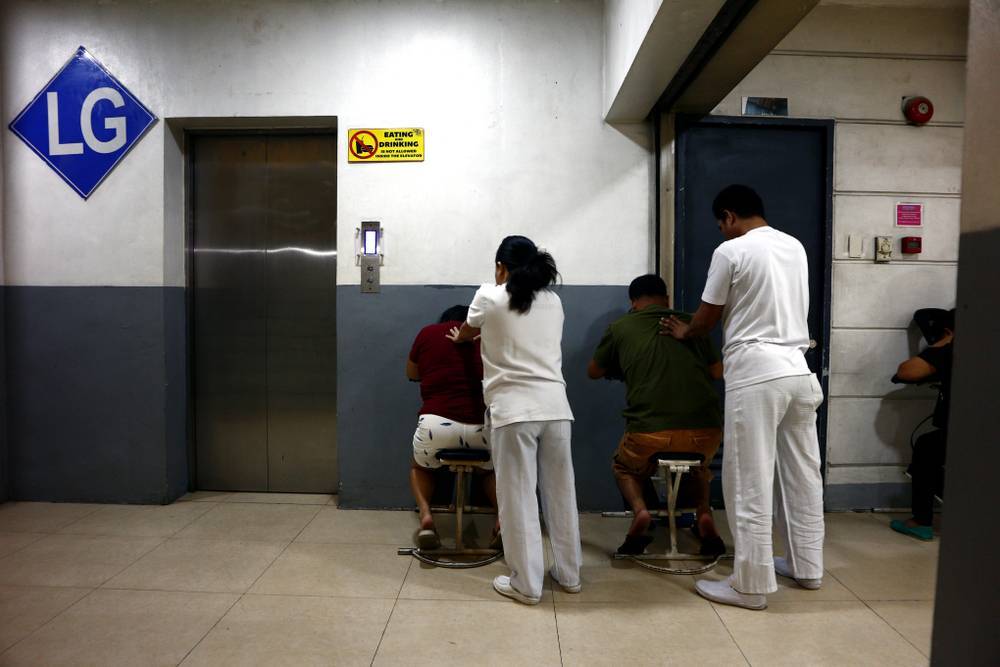Although massages are a popular method of relaxation and pain relief, they can sometimes have negative effects. This is especially true when done incorrectly or too aggressively by untrained hands.
While massages are generally safe, it’s important to be aware of potential risks and when to avoid them. This article looks at a recent case study from Singapore and analyses the occasions when you should not get a massage
When Massages Go Wrong
Singapore news outlet Today reported that a man in his 30s with pre-existing neck pain sought relief at a massage parlour. After the massage, he lost sensation in his arm for six months. The masseuse had applied excessive pressure to his neck, causing nerve damage. After seeking professional medical care, it took the man another six months of recovery to regain full usage of his arm.
While such cases are uncommon, it’s crucial to be mindful of the risks associated with massages. Improper technique can lead to injuries such as nerve damage, muscle, and tissue damage.
Symptoms to Look Out For
Neurapraxia is a mild form of nerve damage that can cause numbness, pain, and a stinging sensation. Applying too much pressure to the neck or other sensitive areas can reduce circulation and affect the network of nerves in the area.
Rhabdomyolysis is another potential complication that has been reported after deep tissue massages. This condition occurs when damaged muscle tissue releases proteins and electrolytes into the blood, leading to heart and kidney damage, permanent disability, or even death. It’s essential to be aware of the symptoms and seek medical attention immediately if you experience darkening of urine, intense muscle pain and weakness, dehydration, decreased urination, or an irregular heartbeat.
When to Avoid Massages
While massages are generally safe, certain individuals should avoid them. People with diabetes should be extra cautious, especially if they have diabetic neuropathy, which can cause nerve damage in the extremities such as the legs and feet. Pregnant women should also be careful, especially if they are unsure whether the therapist is skilled enough to do prenatal massages.
Certain medications, such as high cholesterol, acute gout, and selective serotonin re-uptake inhibitors, can increase the risk of developing rhabdomyolysis. Recreational drug use and alcohol consumption also make one more susceptible to this condition.
If you’re feeling unwell on the day of your massage, it’s best to skip it. Dehydration is a major risk factor for rhabdomyolysis, so it’s crucial to stay adequately hydrated before and after a deep tissue massage.
Talk to the masseuse
Before the massage commences, inform the masseuse if you have these conditions. While you can still get a massage with these conditions, it is important the masseuse is informed to take selective care.
- Contagious skin conditions (boils, warts, or herpes)
- Other skin conditions (burns, rashes, or sores)
- Circulatory system issues (high blood pressure, varicose veins, or stroke)
- Digestive system issues (ulcers, irritable bowel syndrome, or colitis)
- Edema
- Endocrine system issues (diabetes or thyroid dysfunction)
- Musculoskeletal system conditions (carpal tunnel syndrome, fibromyalgia, osteoporosis, rheumatoid arthritis)
- Lymph/immune system issues (chronic fatigue or HIV/AIDS)
- Nervous system conditions (herpes or Parkinson’s disease)
- Respiratory system issues (asthma)
- Miscellaneous conditions (pregnancy, migraines, cancer)
Professional Care vs. Massage
It’s important to seek prompt medical attention for injuries that may require more than just a massage. Sprains and muscle tears may require medical attention if the pain is severe enough to cause loss of power or function.
If the muscles are affected, a massage may provide some relief, but if it’s a joint sprain or tissue tear, a massage could worsen the condition. It’s important to prioritize professional care and seek medical attention promptly if necessary.
Prioritizing massage over professional care can lead to delays in treatment or aggravation of existing conditions and injuries, cautioned Senior physiotherapist Xu Weijie from Core Concepts, a private physiotherapy clinic group in Singapore. “If the muscles are affected, you may get relief from some rest and massage, but if it’s a joint sprain or tissue tear, a massage could worsen it,” Mr Xu added.
Workout Warriors Beware
Intense exercise puts the muscles under a high amount of stress. Therefore, it is important to rest for two to three days before getting a massage. Seeking relief from the immediate symptoms rather than correcting the underlying cause of post-exercise pain could be ineffective. It’s important to focus on the underlying cause of the pain, such as weakness in another muscle group, to avoid worsening the condition.
Final Thoughts
Massages are generally safe, but it’s essential to be aware of potential risks and when to avoid them. Individuals with certain medical conditions, pregnant women, and those feeling unwell on the day of their massage should avoid them. Seek medical attention promptly for injuries that require more than just a massage. Proper technique, a moderate amount of pressure, and communication with your therapist can reduce the risks and provide a relaxing, beneficial experience.

